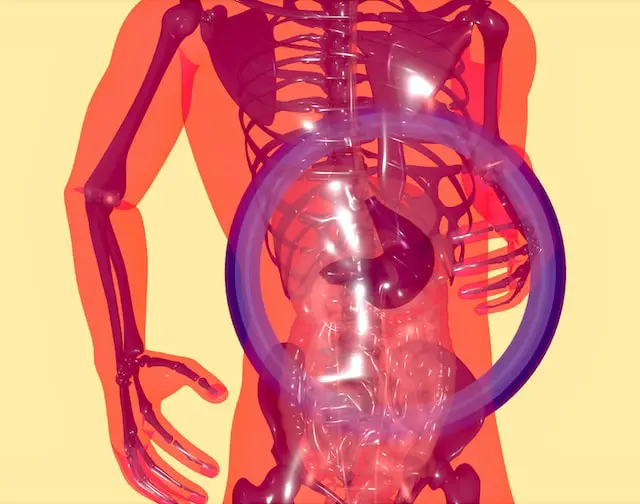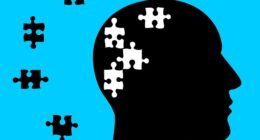Absorption is the process of taking in nutrients from food, while digestion is the process of breaking down food so that the body can absorb the nutrients
What is absorption?
The process of absorption is the uptake of nutrients from the digestive tract into the bloodstream. This includes both small and large molecules, including electrolytes, carbohydrates, lipids, proteins, and vitamins. The process of absorption begins with digestion, which breaks down food into smaller molecules that can be easily absorbed. Once these molecules are in the bloodstream, they are then transported to various cells and tissues throughout the body where they are used for energy, growth, and repair.
There are a few different types of absorption: active absorption, passive absorption, and facilitated diffusion. Active absorption requires energy (in the form of ATP) itotransport molecules across cell membranes. Passive absorption does not require energy and instead relies on a concentration gradient (the difference in concentration of a molecule on either side of a cell membrane). Facilitated diffusion also does not require energy but uses specific transport proteins to move molecules across cell membranes.
What is digestion?
(Photo by julien Tromeur on Unsplash )

The process of digestion involves the breaking down of food into smaller molecules that can be absorbed into the body. Absorption is the process by which these molecules are taken up into the bloodstream and transported to the cells of the body.
There are two main types of digestive processes: mechanical and chemical. Mechanical digestion is the physical process of breaking down food into smaller pieces. This includes chewing and grinding food with the teeth, as well as churning it with the stomach muscles. Chemical digestion is the breakdown of food into smaller molecules by enzymes. Enzymes are proteins that act as catalysts, speeding up chemical reactions in the body.
The first step of digestion takes place in the mouth, where saliva begins to break down food. Saliva contains enzymes that start to break down carbohydrates, such as starch, into smaller molecules. As food moves from the mouth to the stomach, more enzymes are added that continue to break down food. In the stomach, powerful acids and enzymes further break down food.
From the stomach, food moves into the small intestine, where most absorption occurs. The small intestine is a long, coiled tube lined with tiny finger-like projections called villi. Villi increase the surface area of
Absorption Vs. Digestion
Absorption and digestion are two separate processes that occur in the digestive system.
The human digestive system is a complex and amazing machine, responsible for breaking down the food we eat and delivering the nutrients our bodies need to survive and thrive. But what exactly is the difference between absorption and digestion?
Digestion refers to the breakdown of large food molecules into smaller molecules that can be absorbed and utilized by the body. This process starts in the mouth with chewing and the release of enzymes from the salivary glands, and continues through the stomach and small intestine. In the stomach, gastric juices break down food, and in the small intestine, digestive enzymes from the pancreas and bile from the liver help to further break down the food.
Absorption, on the other hand, refers to the process by which the small molecules that result from digestion are taken up by the cells lining the small intestine and transported into the bloodstream. From there, they are transported to the rest of the body to be used for energy, growth, and repair.
Digestion breaks down food into smaller molecules that can be absorbed, while absorption is the process of taking up those smaller molecules into the bloodstream.
Both processes are essential for good health, and they work together to make sure that the body gets all the nutrients it needs.
What are the key differences between absorption and digestion?
The key differences between absorption and digestion are:
- Purpose: The purpose of digestion is to break down food into smaller molecules that can be easily absorbed and utilized by the body. The purpose of absorption is to take up those smaller molecules into the bloodstream and transport them to the rest of the body.
- Processes involved: Digestion involves the mechanical and chemical breakdown of food, while absorption is the passive diffusion of small molecules across the intestinal wall into the bloodstream.
- Location: Digestion occurs mainly in the mouth, stomach, and small intestine, while absorption takes place mainly in the small intestine.
- Control mechanisms: Digestion is regulated by hormones, nervous signals, and digestive enzymes. Absorption is mainly a passive process that is facilitated by the presence of small molecules and the structure of the intestinal wall.
- Type of molecules involved: During digestion, large food molecules are broken down into smaller molecules such as amino acids, monosaccharides, and fatty acids. During absorption, these smaller molecules are taken up into the bloodstream.
What is the Importance of digestion and absorption in maintaining good health?
Digestion and absorption are both critical to maintaining good health because they are responsible for obtaining nutrients from food.
Digestion is important because it breaks down food into smaller molecules that can be easily absorbed and utilized by the body. If food is not properly digested, the body cannot obtain the necessary nutrients it needs to function properly.
Absorption is important because it is responsible for taking up the small molecules that result from digestion into the bloodstream, where they can be transported to the rest of the body to be used for energy, growth, and repair. If absorption is not efficient, the body may not receive all of the nutrients it needs to maintain good health.
Together, digestion and absorption play a crucial role in maintaining good health by providing the body with the nutrients it needs to function properly. In addition, they also help to eliminate waste products from the body.
Therefore, it’s important to maintain a healthy digestive system by eating a balanced diet, drinking plenty of water, exercising regularly, and avoiding foods and habits that can harm the digestive system. By taking care of your digestive system, you can help ensure that your body is able to efficiently digest and absorb the nutrients it needs to maintain good health.
What are the factors that can affect the efficiency of digestion and absorption?
There are several factors that can affect the efficiency of digestion and absorption, including:
- Age: As people age, the digestive system can become less efficient, making it more difficult to digest and absorb nutrients.
- Disease or disorders: Certain diseases and disorders, such as celiac disease, Crohn’s disease, and ulcerative colitis, can affect the efficiency of digestion and absorption.
- Medications: Some medications, such as antacids, antibiotics, and anti-inflammatory drugs, can affect the efficiency of digestion and absorption.
- Stress: Chronic stress can disrupt the digestive system and make it more difficult to digest and absorb nutrients.
- Eating habits: Eating large, high-fat meals, skipping meals, and eating too quickly can all affect the efficiency of digestion.
- Alcohol and tobacco use: Alcohol and tobacco can damage the digestive system, making it more difficult to digest and absorb nutrients.
- Lack of physical activity: A sedentary lifestyle can lead to a slower digestive system, making it more difficult to digest and absorb nutrients.
- Food intolerances: Food intolerances, such as lactose intolerance, can affect the efficiency of digestion and absorption.
- Vitamin and mineral deficiencies: Deficiencies in certain vitamins and minerals, such as iron and vitamin B12, can affect the efficiency of digestion and absorption.
In order to maintain the efficiency of digestion and absorption, it is important to maintain a healthy lifestyle, including a balanced diet, regular physical activity, and avoiding habits that can harm the digestive system. In addition, it is important to seek medical treatment if you are experiencing symptoms of digestive or absorption problems.
What are the diseases and disorders that can impact digestion and absorption?
There are many diseases and disorders that can impact the efficiency of digestion and absorption, including:
- Gastroesophageal Reflux Disease (GERD): A condition in which stomach acid backs up into the esophagus, causing heartburn and other symptoms.
- Irritable Bowel Syndrome (IBS): A condition that affects the large intestine and causes abdominal pain, bloating, and changes in bowel habits.
- Inflammatory Bowel Disease (IBD): A group of conditions that cause inflammation in the digestive tract, including Crohn’s disease and ulcerative colitis.
- Celiac Disease: An autoimmune disease that affects the small intestine and is triggered by gluten.
- Liver Disease: A group of conditions that affect the liver, including hepatitis, cirrhosis, and fatty liver disease.
- Pancreatitis: Inflammation of the pancreas, which can affect the production of digestive enzymes.
- Gallstones: Hard deposits in the gallbladder that can cause abdominal pain and difficulty digesting fatty foods.
- Lactose Intolerance: An inability to digest lactose, a sugar found in milk and dairy products.
- Malabsorption Syndromes: A group of conditions in which the small intestine is unable to absorb nutrients from food, including celiac disease and Crohn’s disease.
- Gastroparesis: A condition in which the stomach takes too long to empty, causing symptoms such as nausea, vomiting, and abdominal pain.
It is important to seek medical treatment if you are experiencing symptoms of digestive or absorption problems, as early diagnosis and treatment can help to prevent or reduce the impact of these conditions.
What are the dietary and lifestyle factors that can improve digestion and absorption?
In order to improve the efficiency of digestion and absorption, there are several dietary and lifestyle factors that can be helpful. One of the most important is eating a balanced diet that includes plenty of fiber, fruits, vegetables, whole grains, lean protein, and healthy fats. These foods can help to support digestive health and promote efficient digestion and absorption of nutrients. Additionally, it is important to drink plenty of water, as staying hydrated can help to flush waste from the digestive system and promote healthy bowel movements.
Incorporating probiotics into your diet, either through fermented foods such as yogurt or kefir, or by taking a probiotic supplement, can also help to improve digestion and absorption by promoting the growth of healthy gut bacteria. Additionally, reducing the consumption of processed foods, sugar, and unhealthy fats, as well as limiting alcohol and caffeine intake, can help to reduce inflammation and promote healthy digestive function.
Finally, engaging in regular physical activity, reducing stress through techniques such as meditation or yoga, and getting enough sleep can all help to improve the efficiency of digestion and absorption by reducing the impact of stress on the digestive system and promoting overall physical and mental wellness. By incorporating these dietary and lifestyle changes into your routine, you can help to support healthy digestion and efficient absorption of nutrients.
Featured Image By – Junior REIS on Unsplash








